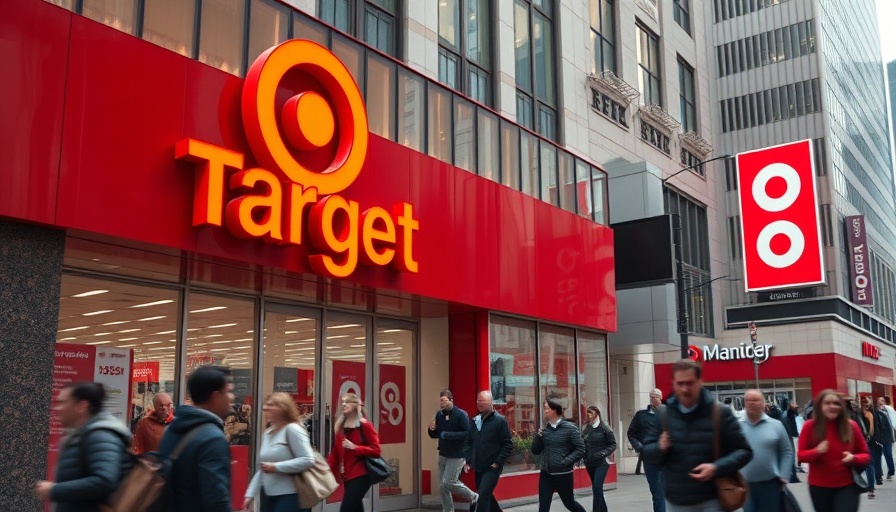
Revitalizing Target: A New Chapter Under Michael Fiddelke
As Michael Fiddelke prepares to take over as CEO of Target in February, he faces the daunting task of steering the iconic retailer through troubled waters characterized by falling sales, dwindling customer loyalty, and skeptical investors. His predecessor, Brian Cornell, leaves behind a legacy tinged with caution as Target's market value has decreased significantly.
The recent earnings report laid bare the company’s challenges: sales have fallen year-over-year, customer traffic is diminishing, and there’s a notable reduction in the average spending per trip to the store. This dire situation places immense pressure on Fiddelke to act quickly and decisively.
Understanding the Stakes: Why This Matters for Investors
For business lenders and investors, Fiddelke's successful navigation of these challenges would signal a recovery potential in the retail sector, previously thought to be vulnerable. Target has historically been a bellwether for consumer trends, and a resurgence under Fiddelke could restore faith in its viability. His commitment to create "new momentum" reflects an urgency that investors long for.
Customer Loyalty: The Bedrock of Revitalization
Fiddelke believes that winning back Target's reputation is crucial. A faltering brand loyalty can have profound effects on sales and investor confidence. He aims to implement changes before his official start date, hinting at a proactive leadership style that could reinvigorate both customer interest and investor trust.
Challenges Ahead: Gaining Trust from Stakeholders
With Fiddelke’s insider knowledge of Target, he might hold the key to turning around the store's fortunes. However, overcoming the skepticism of investors will take more than promises. It will require tangible results that affirm his vision for a revitalized Target—something that stakeholders will be watching closely as the fiscal year unfolds.
Ultimately, Michael Fiddelke's journey as Target's new CEO will not only set the course for the company but also serve as a critical case study for business strategy in the retail sector, reflecting broader economic trends that affect companies across the board. For stakeholders, understanding these developments will be key as they evaluate ongoing investments.
 Add Row
Add Row  Add
Add 




Write A Comment